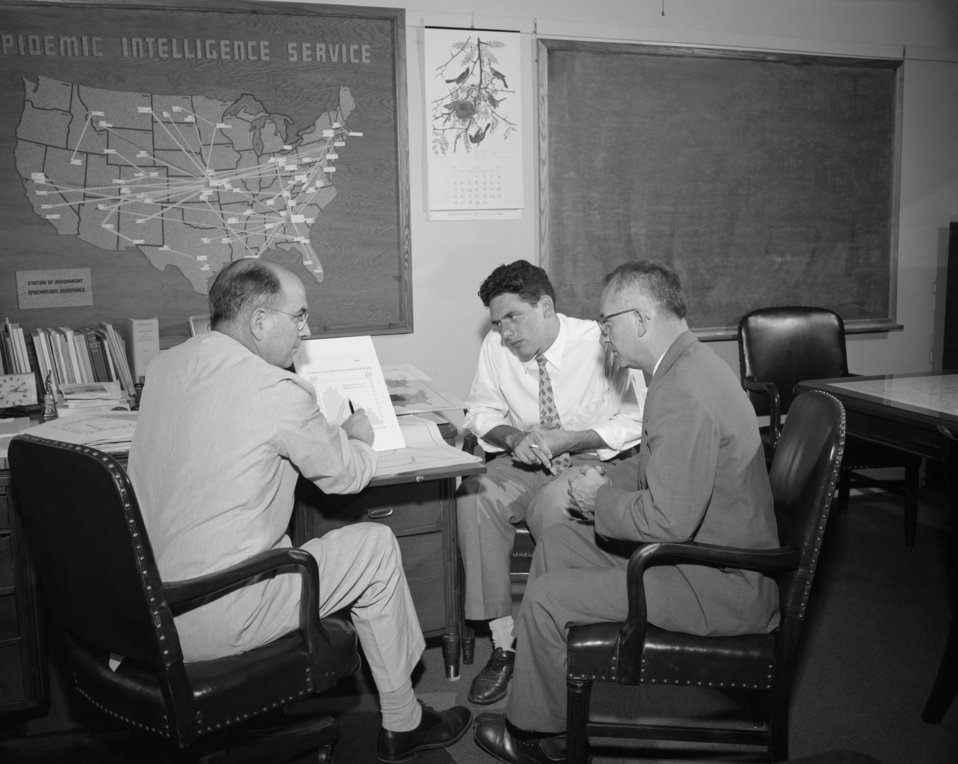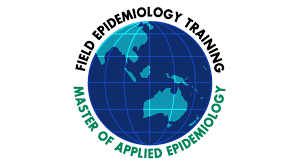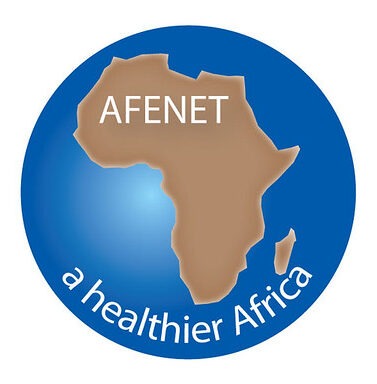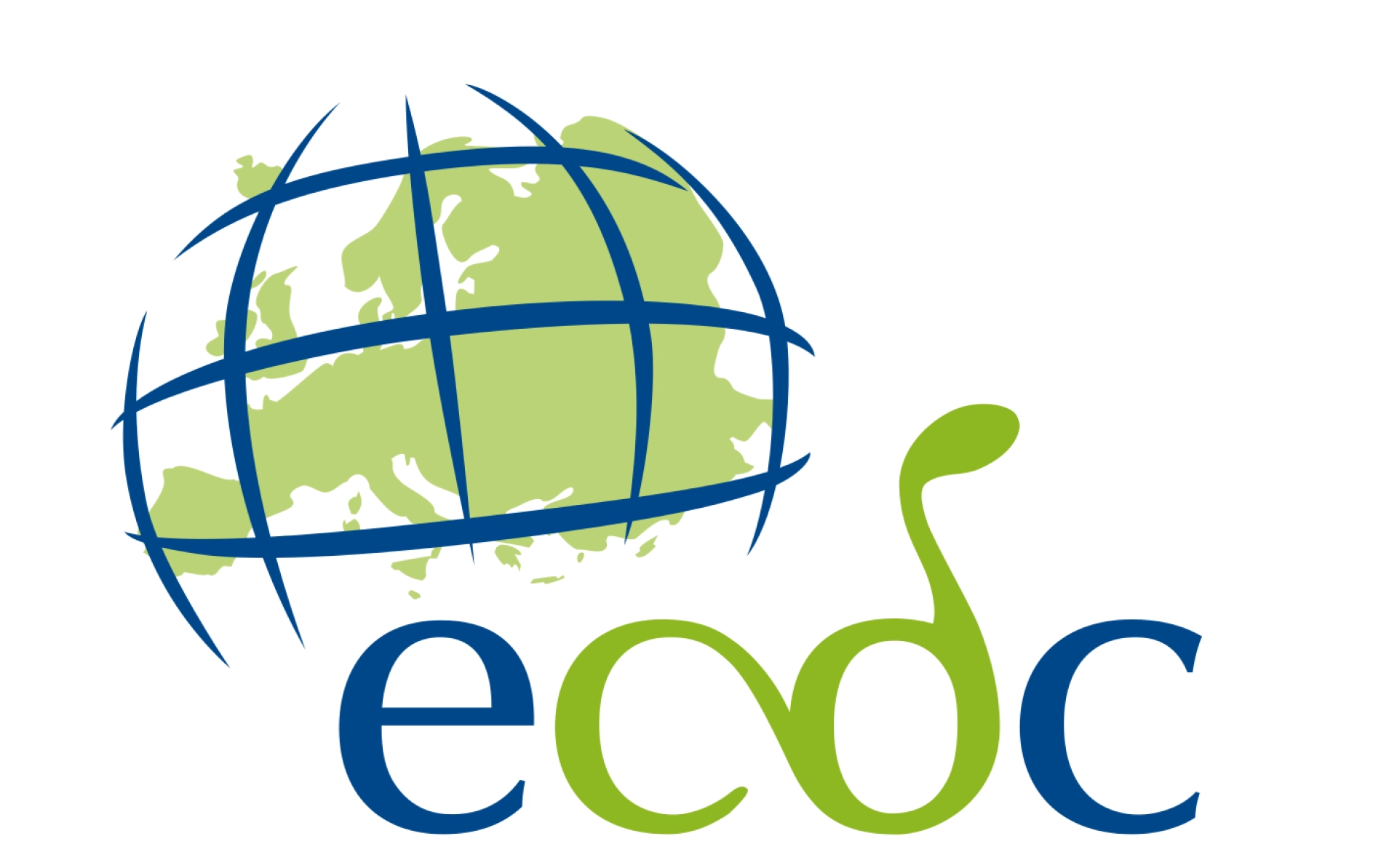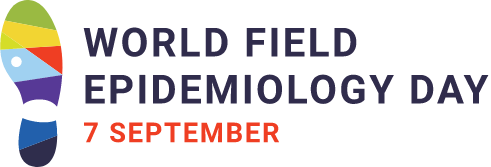
The Indispensable Role of Field Epidemiologists in Public Health
In an age characterized by the rapid spread of diseases and complex health emergencies, the significance of field epidemiologists cannot be overstated. Acting as the world’s “disease detectives,” they are at the forefront of public health, contributing to the early detection, control, and management of both communicable and non-communicable diseases. This article delves into the multifaceted role of field epidemiologists and underscores their importance in safeguarding global health.
The Frontline Warriors: COVID-19 and Beyond
As the COVID-19 pandemic has swept the globe, field epidemiologists have been pivotal in containment and management efforts. They have been involved in contact tracing, case investigations, community engagement, data collection and analysis, and much more. All pandemics, including COVID-19, begin as localized outbreaks, making field epidemiologists critical assets for early detection and control at the community level.
The Pillars of Public Health
Field epidemiologists contribute to every pillar of public health, from coordination and surveillance to operations. They are equipped with the skills to navigate a broad array of health challenges and establish sustainable surveillance systems. These capabilities are not only vital in immediate responses but also instrumental in preventing future health emergencies.
Driving Improvements in Health Systems
Studies and investigations led by field epidemiologists often result in substantial improvements in public health service delivery. Whether it’s optimizing sanitation systems or boosting vaccination coverage, their work serves as the empirical backbone for targeted interventions and policy decisions.
Evidence-Based Impact on Public Health Policies
Around the globe, field epidemiologists advance scientific understanding that informs and strengthens public health policies. Their grassroots-level knowledge and experience enable them to provide decision-makers with the information required to craft effective health interventions and programs.
One Health Paradigm
Field epidemiologists increasingly operate under the One Health framework, addressing health issues at the intersection of humans, animals, and the environment. This holistic approach allows them to respond effectively to a wide range of health issues, including those affecting vulnerable populations in conflict zones and humanitarian emergencies.
Vital Role in Animal Health
The importance of veterinary field epidemiologists has grown in response to the increasing number of zoonotic disease outbreaks. Approximately 60 to 70% of emerging infectious diseases in humans originate from animals. Veterinary field epidemiologists are critical for identifying and controlling these diseases, such as rabies and avian influenza, which can lead to substantial health and socioeconomic emergencies.
Building Multisectoral Capacity
There is a pressing need to enhance the capabilities of animal and environmental health sectors in the field of epidemiology. Animal health is not only vital for addressing zoonotic diseases but also crucial for food security, livelihoods, and economic stability.
One more thing: “Field” epidemiology??
In this article, you have read many different terms referring to the same thing. Just like epidemiological indicators may have different names in various countries (try translating the concept of “attack rate” in some languages), it is the same for “Field Epidemiology”. Francophone countries translate it literally (epidemiologie de terrain), others call it “Applied Epidemiology” (Germany, Australia), “Intervention Epidemiology”, “Consequential Epidemiology”, or even “Shoeleather Epidemiology”, to indicate that this area of epidemiology is primarily aimed at public health action (intervention, immediate collective measures). In the context of this article, they all mean the same thing: Generating scientifically valid evidence for public health action.
Conclusion
Field epidemiology serves as the backbone of public health, providing the evidence needed to drive impactful interventions. Whether investigating localized outbreaks or participating in the containment of global pandemics, field epidemiologists’ contributions are invaluable in shaping health policies and preparedness. Investing in the training and deployment of field epidemiologists, across both human and animal health sectors, will undeniably lead to stronger, more resilient public health systems worldwide.
—
For further information and resources, please contact us.
See also our timeline on Epi Info.
From One Idea to a Global Network
A visual journey through 70+ years of field epidemiology training around the world:
The Epidemic Intelligence Service (EIS) was established by the CDC in 1951 as a two‑year post‑doctoral applied epidemiology training program aimed at rapidly responding to public health threats. The inaugural class began training in Atlanta in July 1951, comprising 22 physicians and one sanitary engineer.
EIS served as the prototype for later Field Epidemiology Training Programs, providing a model of “learning through doing”
The first FETP beyond U.S. borders was established in Canada in 1975, marking the international uptake of the EIS model
Thailand established the first Field Epidemiology Training Program (FETP) outside North America, with support from the CDC and initial funding from USAID. It was the first country to formally use the term "FETP". The two-year in-service program trained public health professionals through outbreak investigations, surveillance, and field placements—laying the foundation for regional capacity-building and One Health integration.
In September 1984, the IDEA programme (Institut pour le Développement de l’Épidémiologie Appliquée) launched in Veyrier-du-Lac, France. Modeled after the CDC's EIS summer course, it was spearheaded by Prof. Louis Massé (ENSP), Dr. Charles Mérieux, and Dr. Michael Gregg (CDC). This three-week residential course trained hundreds of professionals from France and Francophone countries, emphasizing real-life outbreak investigation, communication, and standardised field methods. It became a precursor to the Quebec and Dakar FETP courses and played a key role in shaping the European EPIET programme. The IDEA course was a cornerstone of French-speaking intervention epidemiology for over two decades.
Established in 1991 by the Australian National University’s NCEPH, Australia’s MAE was created to fill a gap in real‑world public health training.
From the outset graduates combined coursework with field placements (often in state, territory or commonwealth health departments), tackling tasks like outbreak investigations, surveillance creation and evaluation, and analysis of priority disease threats.
MAE scholars, drawn from medical, nursing, veterinary and scientific backgrounds, contribute globally—deployed during SARS (2003), responding to H1N1 influenza in 2009, to investigating foodborne disease outbreaks, and more recently supporting COVID‑19 responses.
A priority since 1998 has been to increase participation of Indigenous scholars; though initially via dedicated cohorts, since 2003 MAE has ensured positions for Aboriginal and Torres Strait Islander applicants in every cohort. The program weathered funding changes in 2009‑2012, when government funding models shifted, and adapted via support from field placement partners and ANU to maintain continuity.
As of the mid‑2010s, MAE had graduated nearly 187 individuals, many of whom now serve in senior public health roles in Australia and abroad, and in 2024 the program was reaccredited by TEPHINET with distinction and merit, reaffirming its high quality and regional influence.
Colombia’s Servicio de Epidemiología Aplicada was launched in 1992 by the Instituto Nacional de Salud with support from the CDC. As one of the earliest FETPs in Latin America, it trained applied epidemiologists to strengthen national outbreak investigation, surveillance, and response capacity. Colombia’s program helped pioneer FETP expansion across the region and remains a key contributor to TEPHINET and REDSUR.
Egypt established its Field Epidemiology Training Program in 1993, becoming one of the first countries in the Eastern Mediterranean Region (EMR) to do so. Hosted by the Ministry of Health and Population with support from the CDC, the program provides a rigorous two-year, service-based curriculum. Egyptian FETP graduates have led responses to outbreaks including avian influenza, H1N1, and COVID‑19, and the program plays a central role in regional capacity-building.
The European Programme for Intervention Epidemiology Training (EPIET) was launched in 1995 under the European Commission by former EIS officers. It provided two-year fellowships for medical and public health professionals across the EU, including outbreak investigations, surveillance, field research, teaching and scientific writing. In 2006, the newly formed European Centre for Disease Prevention and Control (ECDC) adopted the programme, and EPIET's yearly Scientific Seminar became the ESCAIDE conference.
In January 1996, Germany established the Postgraduate Training for Applied Epidemiology (PAE) at the Robert Koch Institute (RKI). This two-year advanced program equips scientists in infectious disease surveillance, outbreak response, and applied epidemiological research—modeled closely on the CDC’s EIS and EPIET frameworks. Initial support included a CDC expert seconded to RKI and backing from the German Federal Ministry for Education and Research.
In 1997, the Training Programs in Epidemiology and Public Health Interventions Network (TEPHINET) was formalized as a global professional network unifying FETPs worldwide. By 2019, it included 71 member programs in over 100 countries
Jordan’s Field Epidemiology Training Program was established in 1998 by the Ministry of Health in partnership with the U.S. CDC. As one of the first FETPs in the Eastern Mediterranean Region, it has trained multiple cohorts of public health professionals in applied epidemiology, outbreak response, and surveillance. The program is a regional reference point and a founding member of EMPHNET.
The EAN (https://epietalumni.net) provides a community for field epidemiologists and public health microbiologists to stay connected after completing their fellowship, and forms a largely European cross-border professional network. It was established as an independent association in 2000. The EAN members are alumni from EPIET, EUPHEM and ‘EPIET-associated programmes’, including the German Postgraduate Training in Applied Epidemiology, and other European national Field Epidemiology Training Programmes (FETPs) such as the United Kingdom (UK)-FETP. The EAN also welcomes ‘external’ members who meet similar objectives to the EAN and can provide relevant expertise to the network.

EpiSUS—the Field Epidemiology Training Program tailored to Brazil’s Sistema Único de Saúde (SUS)—was launched in 2000 under technical cooperation with the U.S. CDC. The program provided advanced-level in‑service training rooted in Brazil’s public health system, eventually achieving full national stewardship by 2009
2000–2001 – Launch of Italy’s PROFEA (Applied Epidemiology Training Program)
Italy inaugurated PROFEA, a two-year postgraduate program in applied epidemiology developed by the ISS and University of Rome "Tor Vergata." Combining formal coursework with intensive field training, PROFEA prepared epidemiologists for regional surveillance, program evaluation, and outbreak response. Its inaugural cohort graduated by 2 April 2001, and the program promoted cross-disciplinary learning by allocating slots to veterinarians.
The Italian programme was discontinued in 2006, when ECDC offered the EPIET Member State Track.
In 2001, the ICMR–NIE Chennai launched India’s national two-year Field Epidemiology Training Programme (FETP), supported by WHO, CDC, and Australian FETP. Over its first seven years, 80 trainees completed the program, contributing 158 scientific presentations and 29 peer-reviewed articles, marking a critical step in strengthening India’s applied epidemiology capacity.
October 2001 – China Launches Its National Field Epidemiology Training Program (CFETP)
China's CFETP began in October 2001, supported by WHO and UNICEF, with its first cohort of 10 fellows. By 2021, the program had expanded to include advanced, intermediate, and frontline tracks, enrolling over 420 trainees and training public health professionals who played key roles in responding to SARS, H1N1, H7N9, and COVID‑19 outbreaks across the country.
France established the Programme de Formation à l’Épidémiologie de Terrain (PROFET) in April 2002, a rigorous two-year, full-time training initiative created by InVS and ENSP to prepare epidemiologists for operational roles in regional surveillance and outbreak response. It features a foundational IDEA course and modular learning, with trainees participating actively in real-world epidemiologic investigation and surveillance activities.
The French programme was discontinued in 2006, when ECDC offered the EPIET Member State Track.
The African Field Epidemiology Network (AFENET) was established around 2005–2006 to unify African FETPs and FELTPs, promoting standardization, sustainability, and scaling of epidemiological training, especially in support of the IDSR strategy.
ECDC launches the 'EPIET Member State Track', where countries can participate in the 2-year training, while fellows may stay within their own country, in an acknowledged EPIET Training Site. The purpose of this MS-Track was to diminish the capacity gap of trained field epidemiologists between all EU Member States.

The network of South American Field Epidemiology Training Programs (FETPs), or REDSUR, aims to strengthen activities focused on epidemiology and public health promotion across South America. As FETPs in the region work to grow their programs, including launching frontline and intermediate tiers, REDSUR aims to serve as a collaborative network that supports the development and strengthening of training programs through partnership and sharing of best practices among its member countries. These efforts also come during a time of considerable focus on building regional workforce capacity to detect and respond to public health threats.
Pakistan’s Field Epidemiology and Laboratory Training Program (FELTP) was launched in 2006 with support from the U.S. CDC and USAID, aiming to build national capacity in applied epidemiology and public health surveillance.
In 2007, Pakistan FELTP played a critical role in responding to the H5N1 avian influenza outbreak, catalyzing early cross-sector collaboration that later matured into One Health initiatives. It is also recognized as one of the first FELTPs to formally integrate military medical officers into its 2-year applied epidemiology program (from 2014).
In 2016, Pakistan FELTP received the CDC Director’s Award for Excellence in Outbreak Investigation, honoring its rapid response capacity and regional impact. It remains one of the most active programs in the Eastern Mediterranean Region, producing skilled epidemiologists embedded across national and provincial health systems.
In 2008, the European Public Health Microbiology Training Programme (EUPHEM) was initiated by the ECDC as a distinct, two‑year postgraduate fellowship track. It was designed to strengthen capacity in public health microbiology across Europe, enabling fellows to apply both microbiological and epidemiological methods to communicable disease surveillance and response
The inaugural cohort began with just two EUPHEM fellows, marking the start of a dedicated specialist path for microbiologists within the ECDC’s portfolio
The South Asia Field Epidemiology and Technology Network (SAFETYNET) was established in 2009 as a non-profit consortium to support collaboration among FETPs across South and Southeast Asia. SAFETYNET promotes applied epidemiology, workforce development, and regional preparedness through joint training, research, and knowledge exchange among member countries including India, Bangladesh, Nepal, and Bhutan.
Vietnam’s Field Epidemiology Training Program was launched in 2007 by the Ministry of Health with support from the WHO and U.S. CDC. The program features both a two-year advanced track and shorter applied epidemiology courses. By 2018, over 670 professionals had been trained, strengthening Vietnam’s response to emerging infectious diseases and contributing to regional health security in the Mekong subregion.
EMPHNET was founded in 2009 to serve as an umbrella for FETPs in the Eastern Mediterranean Region, initially including Saudi Arabia, Egypt, Jordan, and Pakistan; later expanding to Morocco, Iraq, Yemen (2011), Tunisia (2017), Afghanistan (2018), Bangladesh (2020), Lebanon and Oman (2022), and Qatar (2023).
In 2015, EMPHNET inaugurated the Center of Excellence for Applied Epidemiology (CEAE) to support FETPs through research, e-learning, and technological innovation.
The Iraq Field Epidemiology Training Program was launched in 2010 by the Ministry of Health, with technical support from EMPHNET and the U.S. CDC. The program focuses on building national expertise in outbreak investigation, surveillance, and data-driven public health response. FETP residents and graduates have played critical roles in responding to cholera, measles, and COVID-19, and in rebuilding the country’s epidemiological capacity after conflict.
The Singapore FETP was established in 2010 by the Ministry of Health to build a sustainable public health workforce skilled in outbreak investigation, surveillance, and risk communication. Modeled after CDC’s EIS program, it combines classroom instruction with real-world outbreak response. The first cohort graduated in 2012, and the program has since contributed to regional epidemic preparedness in Southeast Asia.
In 2011, the United Kingdom introduced its own Field Epidemiology Training Programme (UK‑FETP), providing a structured, two-year in-service fellowship for professionals across the health sciences—modeled on established FETPs—to strengthen outbreak response, surveillance, research, and public health messaging capacities.
MediPIET (Mediterranean and Black Sea Programme for Intervention Epidemiology Training) was initiated in 2013 by the European Commission to strengthen regional preparedness against communicable disease threats. Managed by the ECDC, it has since trained field epidemiologists across 18 partner countries through a two-year competence-based fellowship, “Training of Trainers,” webinars, and scientific events. Since 2021, MediPIET operates under the EU Initiative on Health Security, continuing to foster regional capacity and cross-border collaboration.
In response to gaps exposed during the West Africa Ebola outbreak, FETP‑Frontline, a three-month, local-level training initiative, was launched to strengthen decentralized surveillance capacity. By late 2016, 1,354 graduates across 24 countries had been trained
In 2016, China CDC expanded its advanced two-year FETP by launching a nine-month Intermediate-level track, designed to quickly build mid-career epidemiologists across the country. This training tier enrolled approximately 40 trainees per cohort annually, enrolling a total of 239 participants by 2021—many of whom now serve as disease surveillance leaders in their provinces.
In 2018, China CDC introduced a national Frontline Field Epidemiology Training Program, offering 3 to 6 months of practical, on-the-job training for local public health staff. This program aimed to strengthen disease surveillance, outbreak investigation, and response capacity at the county and district levels across all provinces. By 2021, over 500 trainees had completed the program. The rollout was accelerated in 2020 in response to COVID‑19.
The Global Field Epidemiology Partnership (GFEP) was launched to create a holistic, coordinated platform for multiple stakeholders—CDC, WHO, TEPHINET, and others—to strategically align global FETP efforts
In June 2024, the Maldives Health Protection Agency officially launched the nation’s first Field Epidemiology Training Program (FETP), developed with technical and curriculum support from WHO SEARO, WHO Maldives, WHO India, and Thailand FETP. This initiative includes a Training of Trainers structure to create a sustainable in-country training capacity. The program's first cohort of five professionals completed the 8.5-month training in February 2025, equipped to lead island-level surveillance and outbreak response efforts.
From One Idea to a Global Network: The Evolution and Impact of Field Epidemiology Training
In 1951, a simple but powerful idea took root at the U.S. Centers for Disease Control and Prevention (CDC): to train epidemiologists who could go into the field and investigate outbreaks at their source. That idea gave birth to the Epidemic Intelligence Service (EIS), the first Field Epidemiology Training Program (FETP), which laid the foundation for what would become a global network of disease detectives(1). Seven decades later, the legacy of that idea is seen in more than 80 countries, through interconnected Field Epidemiology (and Laboratory) Training Programs – FE(L)TPs. Together with regional FETP networks and thousands of alumni, this body of disease detectives forms a surge-ready global health workforce (2).
EIS: The Blueprint
The EIS was designed to be practical, hands-on, and responsive to public health threats. Its fellows, often called “disease detectives,” were deployed to investigate infectious disease outbreaks, environmental hazards, and bioterrorism events. Many public health leaders, including CDC directors and WHO staff, were trained through EIS (3). It established a model of learning by doing, with real-time service embedded in the training structure. The strength of EIS lies not only in its technical rigor but in its emphasis on mentorship, communication, and rapid deployment—a triad that remains central to all subsequent FETPs.
Using the EIS blueprint, countries started to copy this model. Canada was the first country outside the US to set up a national FETP in 1975, while Thailand set up the first Asian national programme in 1980. In the Western Pacific, the Master of Applied Epidemiology (MAE) program at the Australian National University was launched in 1991 as Australia’s national FETP. Over 30 years later, it remains one of the few programs to award a full academic degree in field epidemiology. By now, MAE has trained over 200 professionals and supported outbreak responses across the Asia-Pacific region. Its emphasis on Indigenous public health, regional deployment, and rigorous field placement exemplifies how national FETPs can strengthen both domestic and international health resilience (4). From that moment on, the FETPs developed rapidly; Colombia in 1992 as the first Latin American national FETP and Egypt in 1993 with the first national FETP on the African continent.
EPIET and the European Expansion
In 1995, the European Programme for Intervention Epidemiology Training (EPIET) was established as the first full regional FETP, with funding from the European Commission, and coordinated by a Steering Committee representing the Member States. The programme spawned national FETPs in EU Member States, sharing the same training modules, but training in their own country. Together with these EPIET-associated programs, EPIET was truly a programme for the states, by the states (5).
Later, it was coordinated through the new European Centre for Disease Prevention and Control (ECDC), which was established in 2005, composed mainly of EPIET Alumni, Supervisors, and Scientific Coordinators. In fact, ECDC itself can be considered a visible demonstration of the capacity-building power of EPIET and its associated programs.
EPIET’s hallmark was its EU-track approach: fellows trained outside their home country, fostering cross-border collaboration and harmonisation of outbreak response across Member States. To support countries that struggled to retain EU-trained fellows, EPIET launched a Member State Track, offering tailored capacity building to Ministries of Health and national institutes. In 2008, the launch of EUPHEM (European Programme for Public Health Microbiology Training) mirrored the EPIET model, focusing on laboratory-based outbreak detection and response. Together, these tracks formed the backbone of the EU’s field epidemiology and microbiology training ecosystem.
A Global Surge Capacity
One of the greatest strengths of FETPs is their dual role: building capacity during peacetime and providing surge capacity in crises. Fellows participate in real-world service placements, and alumni return to the public health workforce. This setup means that when emergencies arise, fellows can be assigned to national outbreak response teams, while alumni are already integrated into ministries, laboratories, and surveillance systems. Having two concurrent cohorts allows programs to reassign fellows to urgent tasks without stopping training entirely. During outbreaks of COVID-19, Ebola, and cholera, this model proved to be invaluable (6).
The Global Landscape
Following the EIS and EPIET models, national and regional programs emerged worldwide:
CFEP (Canada Field Epidemiology Program) was launched in 1975, becoming the first FETP established outside the U.S.
Thai FETP (1980) was the first Asian FETP, established with CDC support and hosted by Thailand’s Ministry of Public Health.
Tephinet, founded in 1997, became the first global FETP network, facilitating coordination, accreditation, and peer learning.
- EAN (EPIET Alumni Network) was created in 2000, representing the first regional FETP alumni association, supporting collaboration, continuous professional development, and response mobilization.
AFENET (Africa Field Epidemiology Network) and EMPHNET (Eastern Mediterranean Public Health Network) became critical regional hubs for training, mentorship, and deployment coordination.
- Pakistan FELTP (2006) introduced One Health approaches after the H5N1 outbreak and formally included military medical officers.
SAFETYNET (2009) (Southeastern Asia Field Epidemiology and Technology Network) linked Thailand, Vietnam, Malaysia, and others in Southeast Asia.
MediPIET (2013) (Mediterranean Programme for Intervention Epidemiology Training) covered the MENA region under EU coordination.
Programs in Egypt, Iraq, Colombia, Jordan, India, Vietnam, and Singapore have achieved national impact, training hundreds of professionals who now lead surveillance and outbreak response.
In 2015, the global roll-out of FETP-Frontline offered 3-month rapid training for district-level staff, while the Global Field Epidemiology Partnership (GFEP) launched in 2023 to coordinate efforts at the international level.
Why It Still Matters
In an era of pandemics, climate-related health threats, and complex emergencies, FETPs offer more than training: they represent an enduring investment in resilience. No software platform, AI model, or remote sensing system can replace a well-trained local field epidemiologist who knows the health system, understands the community, and can act immediately. FETPs offer a scalable, cost-effective way to strengthen core public health functions while maintaining a reserve of surge-ready professionals who can be rapidly mobilized.
From a single idea at CDC in 1951 to a global network today, the evolution of FETP is not just a success story—it is a strategic imperative for 21st-century health security.
References
(1) Langmuir AD. The Epidemic Intelligence Service of the Center for Disease Control. Public Health Rep. 1980 Sep-Oct;95(5):470-7. PMID: 6106957; PMCID: PMC1422746.
(3) Stephen B. Thacker, Andrew L. Dannenberg, Douglas H. Hamilton, Epidemic Intelligence Service of the Centers for Disease Control and Prevention: 50 Years of Training and Service in Applied Epidemiology, American Journal of Epidemiology, Volume 154, Issue 11, 1 December 2001, Pages 985–992, https://doi.org/10.1093/aje/154.11.985
(4) Davis, Stephanie, et al. “The Australian Master of Applied Epidemiology program: looking back, moving forward.” Communicable Diseases Intelligence 40 (2016): 326-333.
(5) Bosman A, Schimmer B, Coulombier D. Contribution of EPIET to public health workforce in the EU, 1995-2008. Euro Surveill. 2009;14(43):pii=19381. Available online: http://www.eurosurveillance.org/ViewArticle.aspx?ArticleId=19381
(6) Field Epidemiology Training Programs to accelerate public health workforce development and global health security. Martin, Rebecca et al. International Journal of Infectious Diseases, Volume 110, S3 – S5

